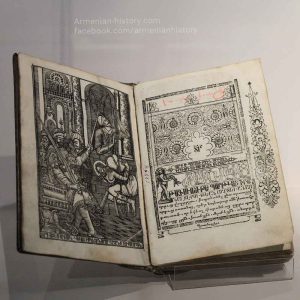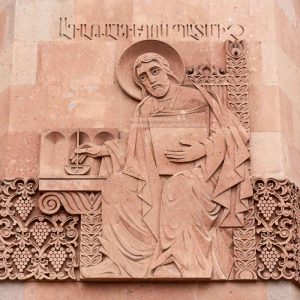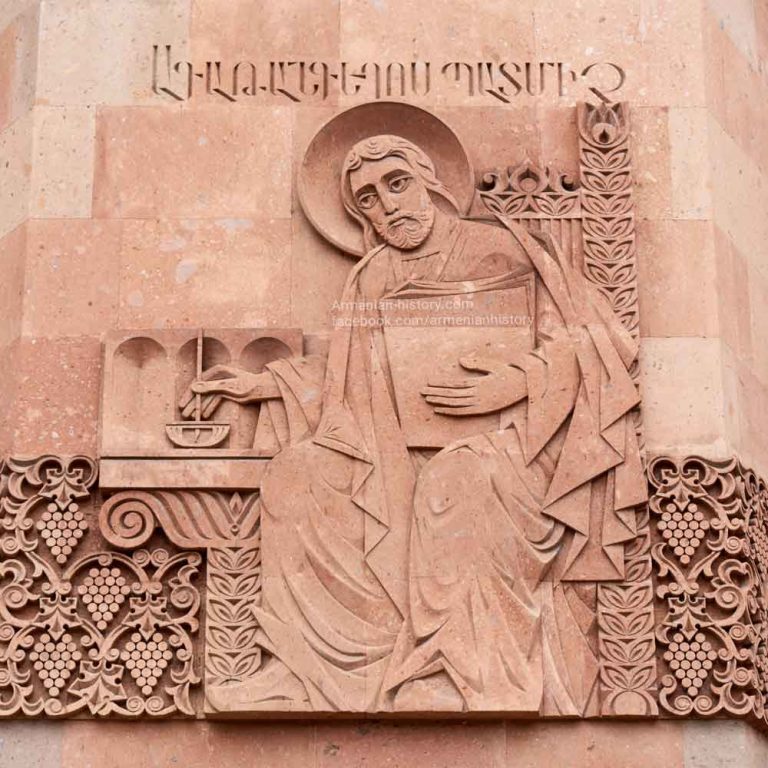Agathangelos is one of the most influential figures in early Armenian historiography, best known as the author of The History of the Armenians—a foundational text chronicling Armenia’s conversion to Christianity in the early 4th century. Though traditionally believed to have been a secretary or court historian to King Tiridates III, modern scholars agree that the surviving version of his work was compiled in the 5th century, possibly drawing on earlier oral traditions and lost documents.

A Chronicle of Faith and Nationhood
At the heart of Agathangelos’s account is the dramatic story of Saint Gregory the Illuminator and the conversion of King Tiridates III, events that led to Armenia becoming the first nation to adopt Christianity as a state religion in 301 AD. Agathangelos presents this transformation as both a spiritual awakening and a pivotal political act that redefined Armenia’s identity in a rapidly changing world. His work serves as a blend of hagiography, national myth, and historical narrative, emphasizing divine intervention, martyrdom, and moral struggle.
Authorship and Historical Reliability
While Agathangelos refers to himself as a contemporary eyewitness, most scholars today regard his authorship as pseudonymous, with the surviving text likely compiled around AD 450–480. Despite questions of authorship and embellishment, his work remains an indispensable source for understanding early Christian Armenia, its royal court, and its ecclesiastical development.
Agathangelos’s history is not limited to the Christian narrative—it provides detailed descriptions of Armenia’s pagan past, Zoroastrian influence from Persia, and the internal resistance that accompanied religious reform. His vivid language and structured moral universe reflect the theological and political concerns of post-conversion Armenia, offering insight into the cultural tensions of the time.
Influence and Legacy

The History of the Armenians became a cornerstone of Armenian Christian literature and was widely copied, translated, and read throughout the medieval world. It played a central role in shaping the narrative of Armenia as a chosen nation, spiritually guided and historically distinct. His portrayal of Saint Gregory as a national apostle helped elevate the Armenian Church’s status and justified its independence from both the Byzantine and Persian religious spheres.
Agathangelos’s legacy lives on not only in religious and historical scholarship but also in Armenian national consciousness, where he is revered as a voice that preserved and glorified the defining moment in Armenian history—the embrace of Christianity.

